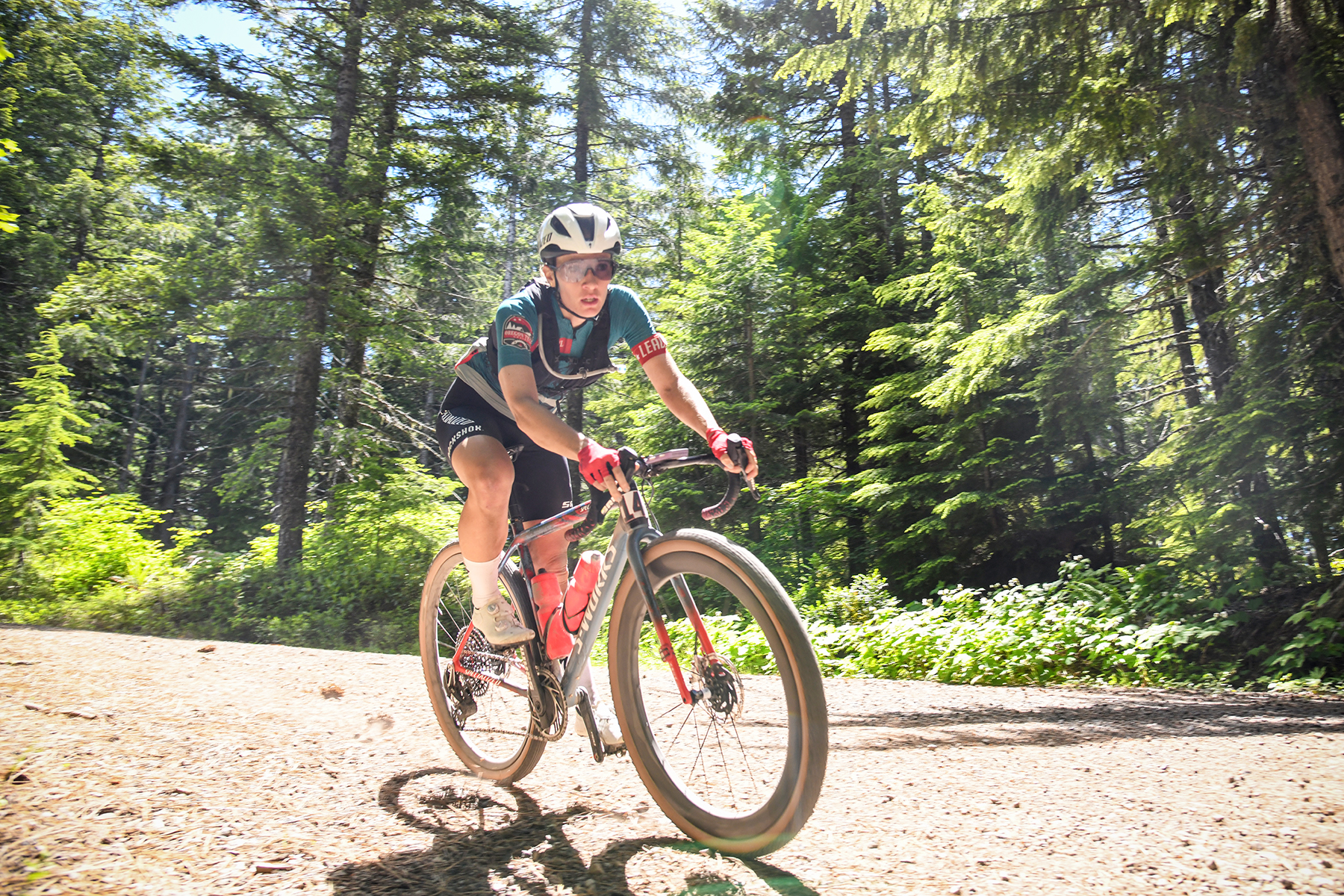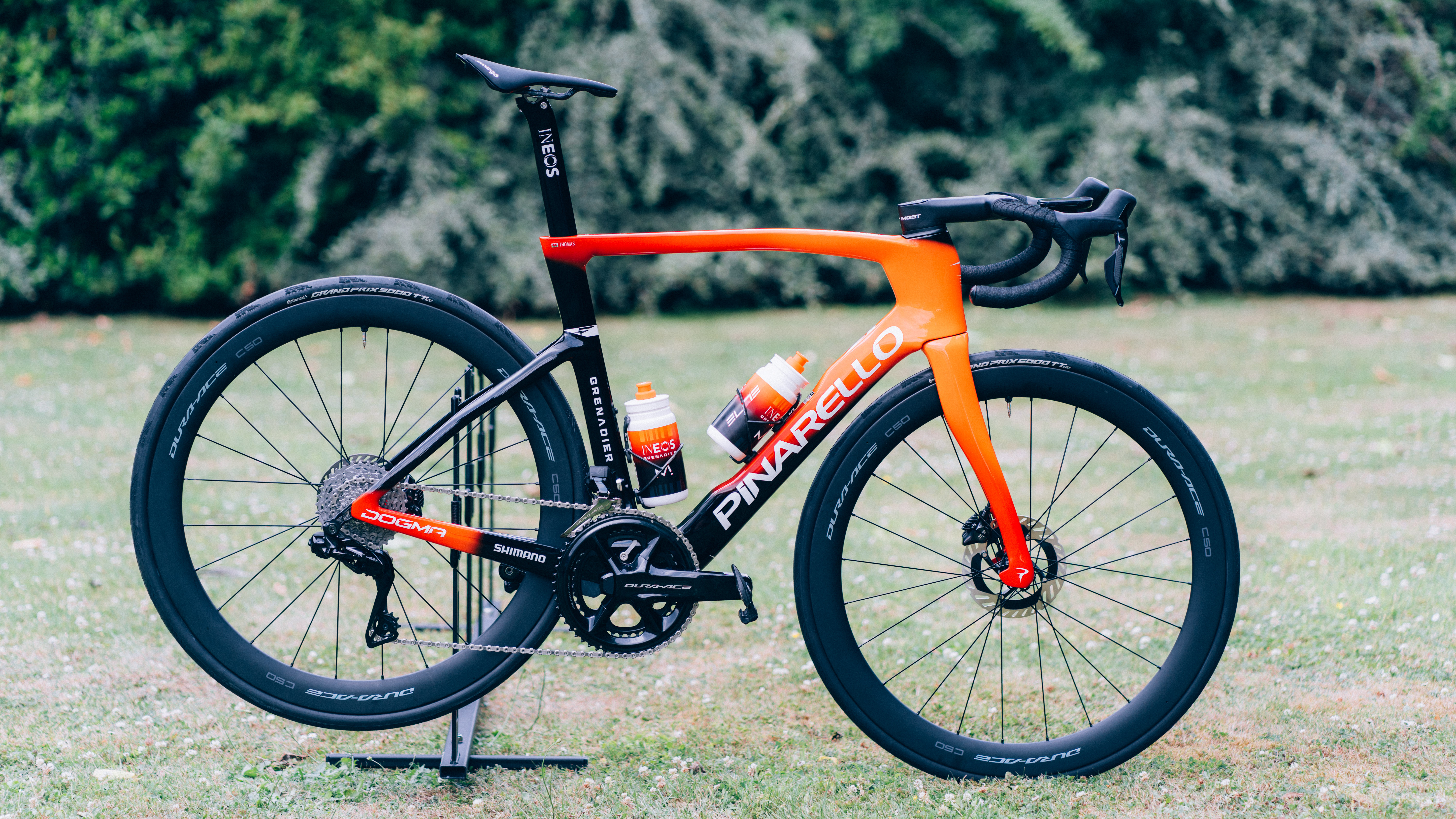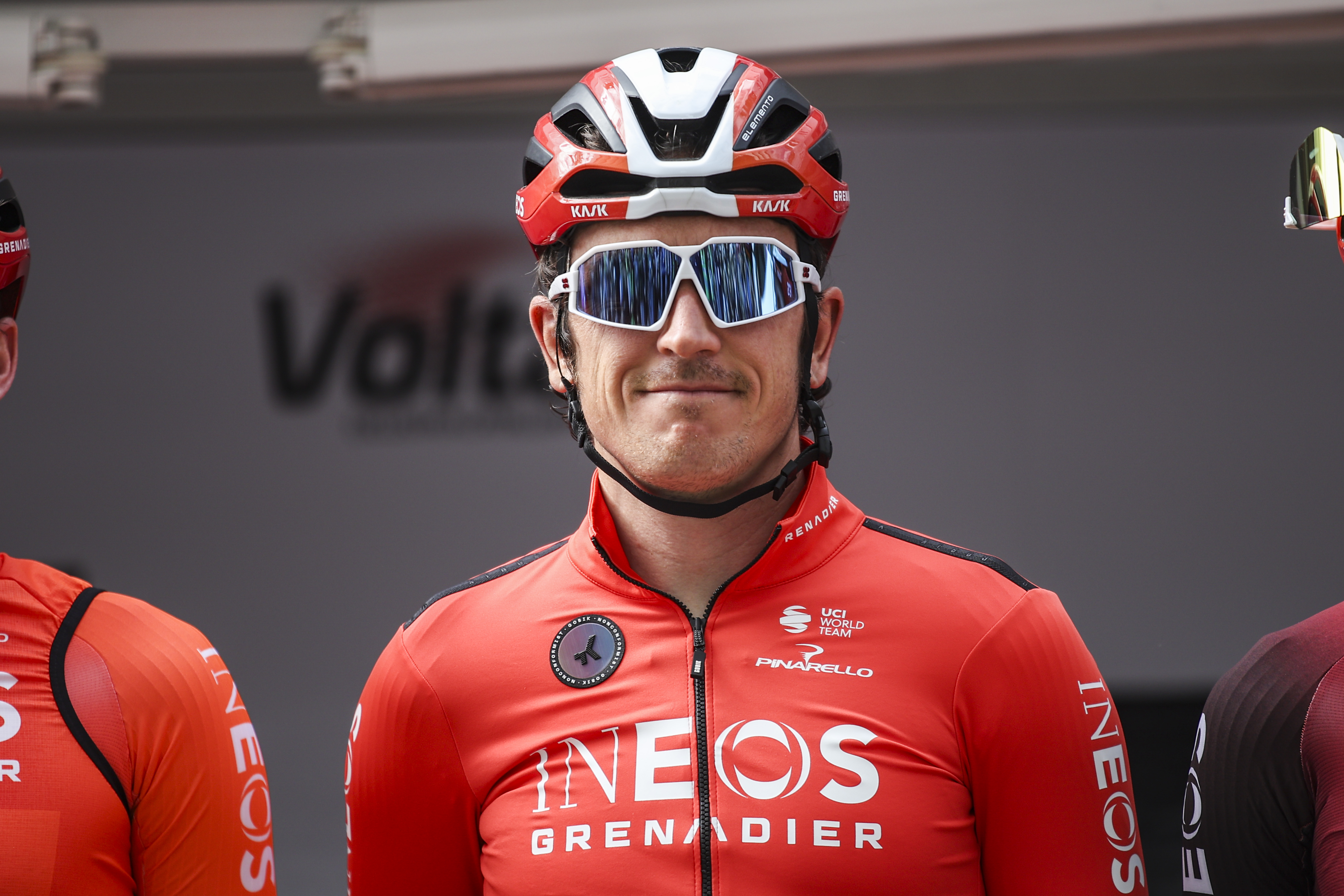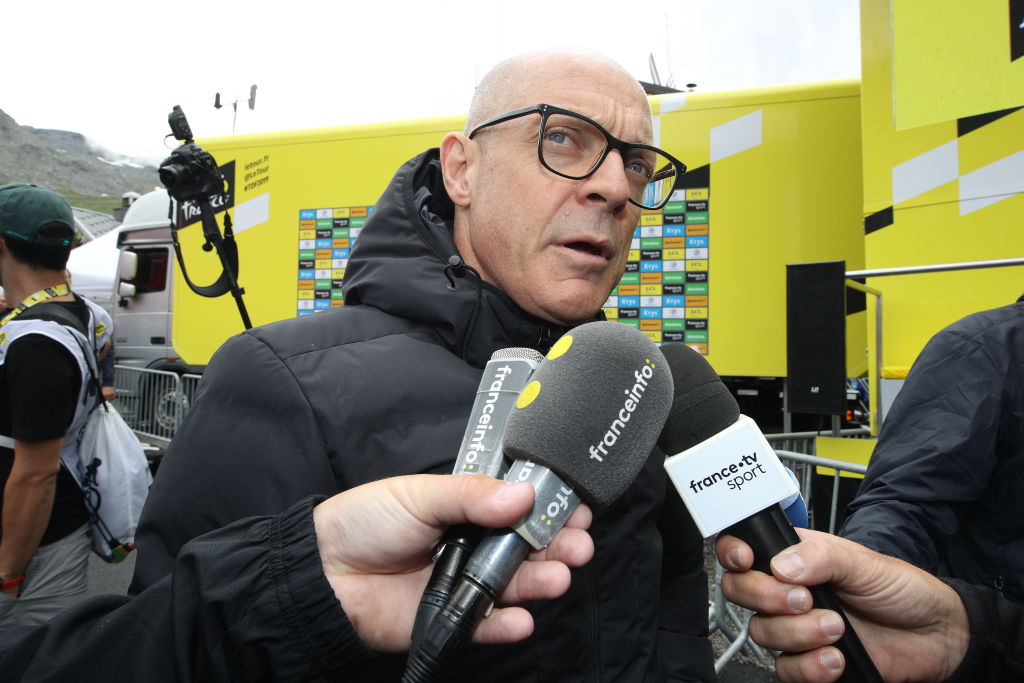Vuelta a España 2015 race preview
Froome, Quintana and Nibali face off for Tour de France re-match
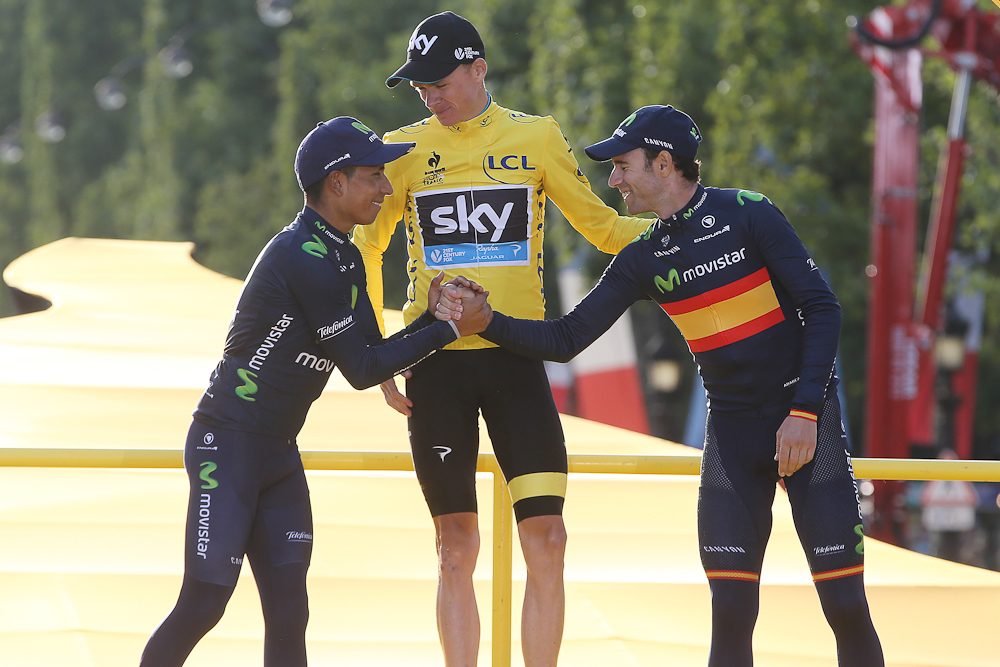
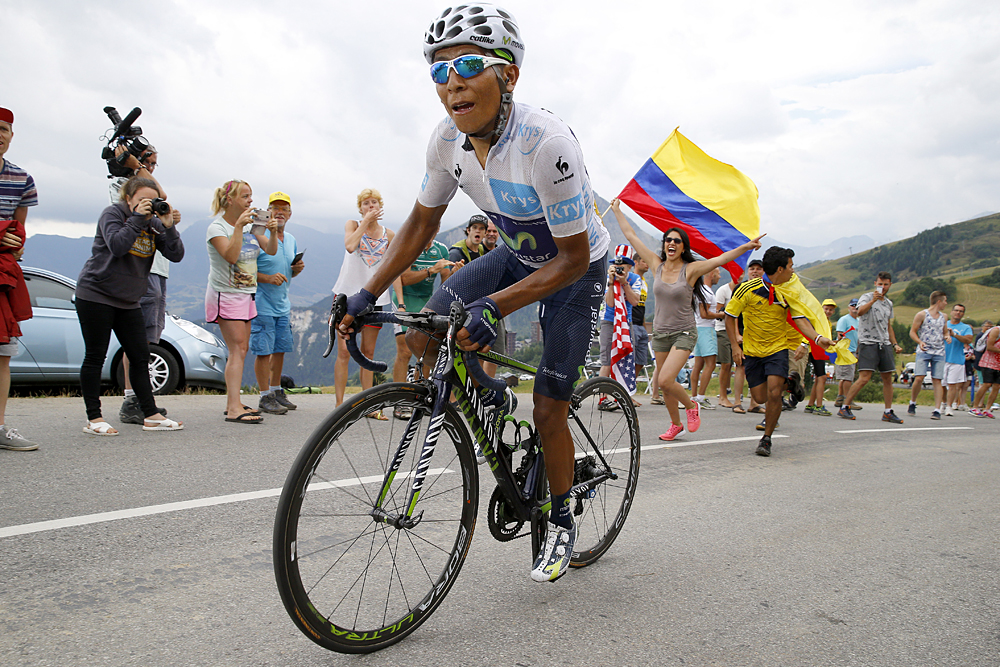
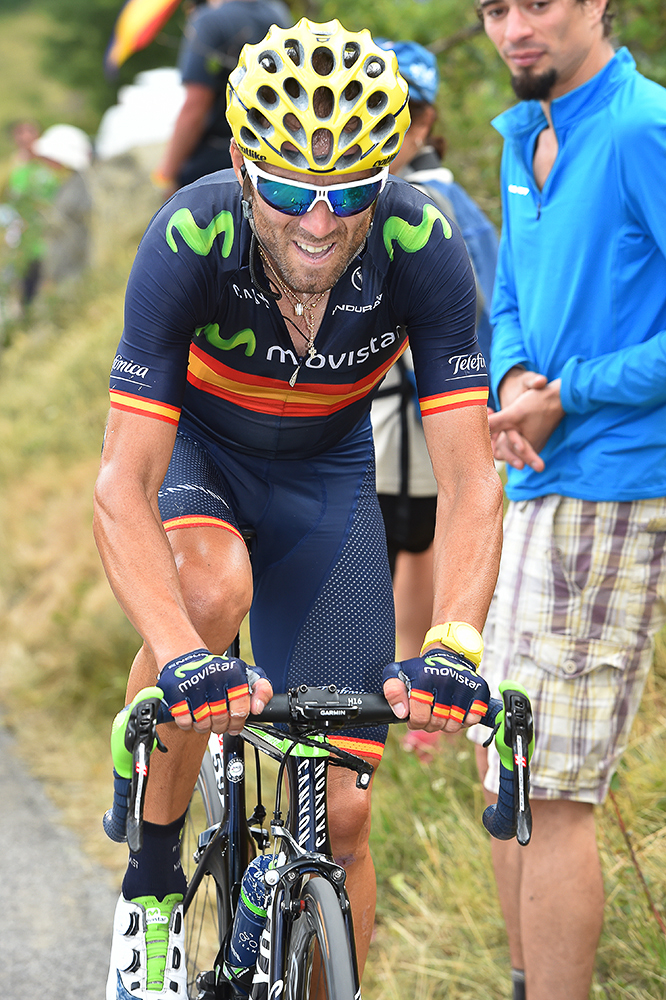
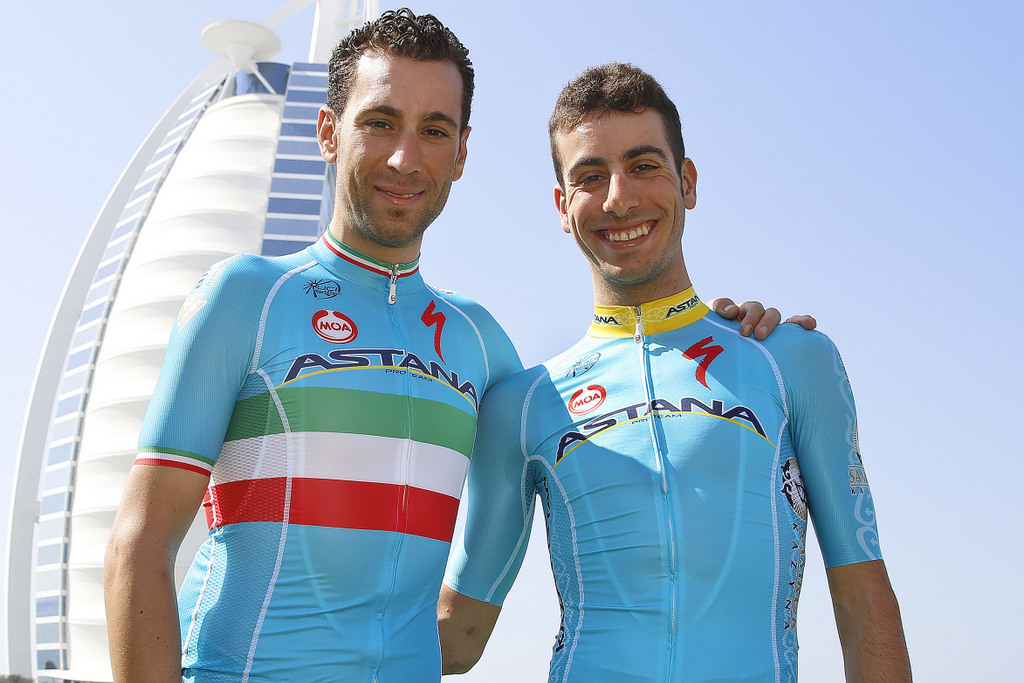
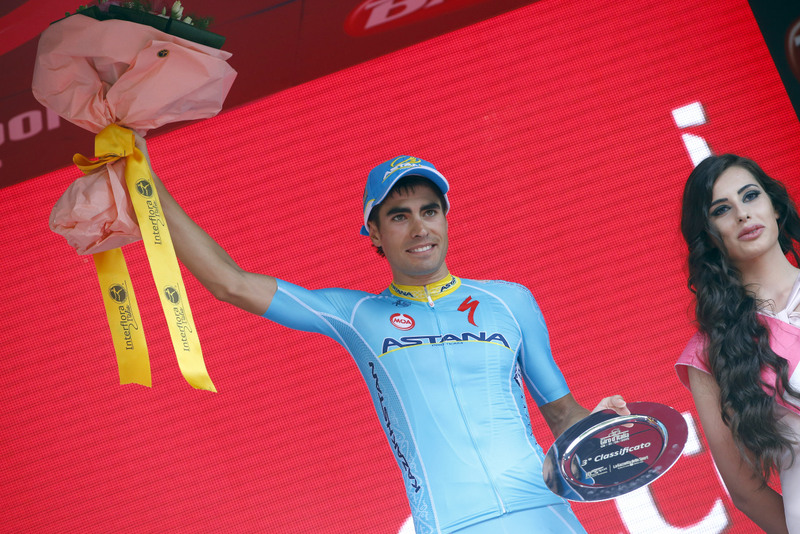
Oleg Tinkov won't appreciate the irony, but after spending much of last winter and spring trying to bait Chris Froome, Vincenzo Nibali and Nairo Quintana into taking on his so-called Grand Tour challenge, his man Alberto Contador is the glaring absentee from one of the most star-studded editions in Vuelta a España history.
The Vuelta organisers will undoubtedly miss the defending champion Contador, who carries a box office appeal in Spain that none of his contemporaries can match. No other rider, for instance, could knock Real Madrid off the front page of Marca on the day football's transfer window closed, as Contador did in 2014, but his absence is offset in no small part by the glittering array of galacticos in the field this year.
Twelve months ago, the Vuelta had the feel of a Tour de France do-over, as Contador and Froome looked to make amends after crashing out in July. This time around, it is something grander again: a Tour de France rematch. The three podium finishers from the Tour – Froome, Quintana and his Movistar stable-mate Alejandro Valverde – are all on hand, along with the fourth-placed Nibali, who for good measure is joined by his Astana stable-mates Fabio Aru and Mikel Landa.
Froome, of course, is not simply facing off against the men he beat to the Tour crown a month ago, he is also making a tilt at history. Only two riders – Jacques Anquetil in 1963 and Bernard Hinault in 1978 – have achieved the Tour-Vuelta double, and their victories came when the Vuelta preceded the Tour by some two months. Since the Vuelta shifted to its current Autumn slot in 1995, Carlos Sastre is the only Tour champion to even start the Vuelta a month later, and his 2008 double bid ended with a third place finish behind Contador.
Quite how well Froome has recovered from his Tour victory is a mystery. After a dominant showing as far as the Pyrenees, Froome betrayed definite signs of weakness in the final two days in the Alps, and his busy schedule of criteriums in the intervening period, lucrative though it was, hardly seems the ideal preparation for another three weeks at the coalface.
The last time Froome raced the entire Tour and Vuelta in 2012, he had to settle for fourth place, some ten minutes off the pace, though there was a sense on that occasion that he was in Spain to lay the foundations for the following season as much as to win the race. Even as he lines up this year, Froome will be mindful that the last four Tour winners all raced the Vuelta the preceding Autumn, but backed by a strong Sky squad that includes Geraint Thomas and Sergio Henao, he arrives in Marbella targeting final overall victory.
Froome versus the Movistar and Astana Armadas
The majority of the bookmakers have not seen fit to list Froome as the outright favourite for this Vuelta, however, preferring instead the prospects of Quintana, who seemed to finish his Tour in far better fettle than he had started it. Like Froome, Quintana hasn't had a competitive outing since the Tour, but he has been mindful to keep his criterium commitments to a minimum and his participation in the Vuelta was confirmed early on.
Quintana is joined in the Movistar squad by Valverde and, contrary to what might have been feared beforehand, they dovetailed their efforts well at the Tour. Too well, perhaps – right up to the final day in the Alps, one wondered if they were happier to race for second and third rather than risk all in a bid to dislodge Froome. If Froome arrives at the Vuelta at anything like his Tour form, they will certainly need to race with a little more abandon than they did in France.
It's notable, too, that Quintana and Valverde have considerable mileage on the clock already this season, and, as Vincenzo Nibali discovered to his cost in 2013, mental and physical freshness goes a long way at this point in the season. Quintana began his campaign at the Tour de San Luis in January and has amassed 57 race days this season. Valverde, winner of Flèche Wallonne and Liège-Bastogne-Liège, has clocked up 63. By contrast, Froome has "just" 48 race days in his legs.
Despite the presence of Quintana, Valverde and Andrey Amador (4th at the Giro), Movistar's is not necessarily the strongest team at the Vuelta. On paper at least, that honour falls to Astana, who count no fewer than three potential winners among their number in Nibali, Aru and Landa, and the bones of the supporting team that performed to such a startlingly high level at the Giro, with Dario Cataldo and Paolo Tiralongo all set to ride.
Aru has been designated as team leader at the Vuelta since the season began and showed real signs of form at the Tour de Pologne, but he found himself upstaged by Landa for long stretches of the Giro, while Nibali, despite his exertions at the Tour, is still arguably the most reliable Grand Tour performer in the world. Astana directeur sportif Giuseppe Martinelli's toughest task will be to ensure that his men row in the same direction – a feat only barely pulled off at the Giro – though he has previous in this regard. At the 2004 Giro, after all, he guided Damiano Cunego to victory despite a potentially ruinous internal rivalry with Gilberto Simoni.
The outsiders
It will be something of a surprise if the winner does not emerge from the Sky, Movistar and Astana camps, but then the Vuelta is a race that counts Chris Horner and Juan José Cobo among its recent winners, and was the platform for Froome's own dramatic rise from relative obscurity to Sky leader in waiting in 2011. In short, just about anything is possible in Spain in August.
Joaquim Rodríguez (Katusha) could have won the Vuelta in 2010 and probably should have won it in 2012. The 36-year-old quickly fell out of the general classification shake-up at the Tour but still helped himself to two stage wins, and he will expect to be a factor at the Vuelta, even if a podium finish would appear the summit of his ambition.
Tejay van Garderen (BMC) lines up for his first Vuelta since his first year as a professional eager to make amends for his abortive Tour. The American was still on course for a podium finish when illness forced him out on the first day in the Alps, but like many others, he hasn't races since, and the extent of his recovery remains a mystery.
Dan Martin and Andrew Talansky lead the line for a Cannondale-Garmin team in dire need of results after a troubled campaign, and it will be fascinating, too, to see how Tour of Utah winner Joe Dombrowski fares in his Grand Tour debut. In the absence of Contador, Rafal Majka will lead Tinkoff-Saxo's overall challenge, while Domenico Pozzovivo (Ag2r-La Mondiale), recovered from the crash that ended his Giro challenge early on, has been named by Nibali as a dark horse for overall victory.
Beyond the general classification contenders, a cavalcade of World Championships contenders will be on hand, though with this year's event taking place in Richmond, more riders than normal are using the North American races to prepare for the big day. Nonetheless, Fabian Cancellara (Trek), Peter Sagan (Tinkoff-Saxo), Tom Dumoulin, John Degenkolb (Giant-Alpecin) and Nacer Bouhanni (Cofidis) will all be in Spain. Like last year, Degenkolb and Bouhanni will expect to mop up what few opportunities there are for the sprinters.
The route
At first glance, this Vuelta has a familiar guise, with a long stint in Andalusia in the opening week and no fewer than nine summit finishes in total, yet in many respects, this year's race is something of a voyage into the unknown. For one thing, none of the Vuelta's summit finishes have previously featured on the race, while, in a departure from recent editions, the final mountaintop finish comes on stage 16 with almost an entire week remaining.
To compensate, there tough finales aplenty shoehorned into the opening week. After the short team time trial from Porto Banus to Marbella on the opening Saturday, the overall contenders have an early test on stage 2, with the punchy finish at Caminito del Rey, and again at Vejer two days later, before more robust examinations at La Capilleira on stage 7 and Cumbre del Sol on stage 9.
The toughest outing arrives on stage 11, immediately after the first rest day, and takes place entirely within the borders of Andorra. The peloton faces some 5,200 metres of vertical climbing in the space of just 138 kilometres, including the tough ascent to the line at Cortals d'Encamp.
The second week comes to a brutal end, too, with three successive summit finishes in Cantabria and Asturias, and one would expect the strongest climber in the race to be in the red jersey after those hauls up to Fuente del Chivo, Alto de Sotres and Ermita de Alba.
The final act of the Vuelta, by contrast, offers a rather different kind of challenge, starting with a 39-kilometre time trial in Burgos that is long enough to prove terminal for some contenders – recall Rodriguez's torrid outing at Peñafiel in 2010.
From there, the organisers have taken a calculated risk with the final week. It may yet prove that a strongman has put the race beyond reach by that point, but if the Vuelta is still in the balance, then it will be difficult to control the race on the punchy terrain that marks the closing days. The finale in Ávila, which features on stage 19, is always a dramatic one, while the penultimate day's trek over the evocative Navacerrada demands caution. The Sierras of Madrid, after all, have a habit of turning the Vuelta on its head.
The latest race content, interviews, features, reviews and expert buying guides, direct to your inbox!

Barry Ryan was Head of Features at Cyclingnews. He has covered professional cycling since 2010, reporting from the Tour de France, Giro d’Italia and events from Argentina to Japan. His writing has appeared in The Independent, Procycling and Cycling Plus. He is the author of The Ascent: Sean Kelly, Stephen Roche and the Rise of Irish Cycling’s Golden Generation, published by Gill Books.
Latest on Cyclingnews
-
Cascade mountains, camping and crazy hard racing - Sofia Gomez Villafañe and Cameron Jones win GC titles at Oregon Trail Gravel Grinder
Mattia de Marchi survived three of the five stages before withdrawing from the 20% bonus scoring event in the Gravel Earth Series -
Gallery: Geraint Thomas' last ever Tour de France race bike
How has the venerable Welshman set up his Pinarello Dogma on the eve of his final Tour de France? -
'A stage win would be amazing' – 18 years since debut, Geraint Thomas eyes final Tour de France hurrah before retirement
Fully recovered from Tour de Suisse crash, Welshman excited as ever for 14th and 'one last big lap' of France -
'Not-so-secret weapon' Dave Brailsford returns to Ineos Grenadiers as they work to regain Tour de France dominance with TotalEnergies as new sponsor
'I'd like to think that in ten years' time you can see this era as a pivot point to a new chapter of success' says team manager John Allert
